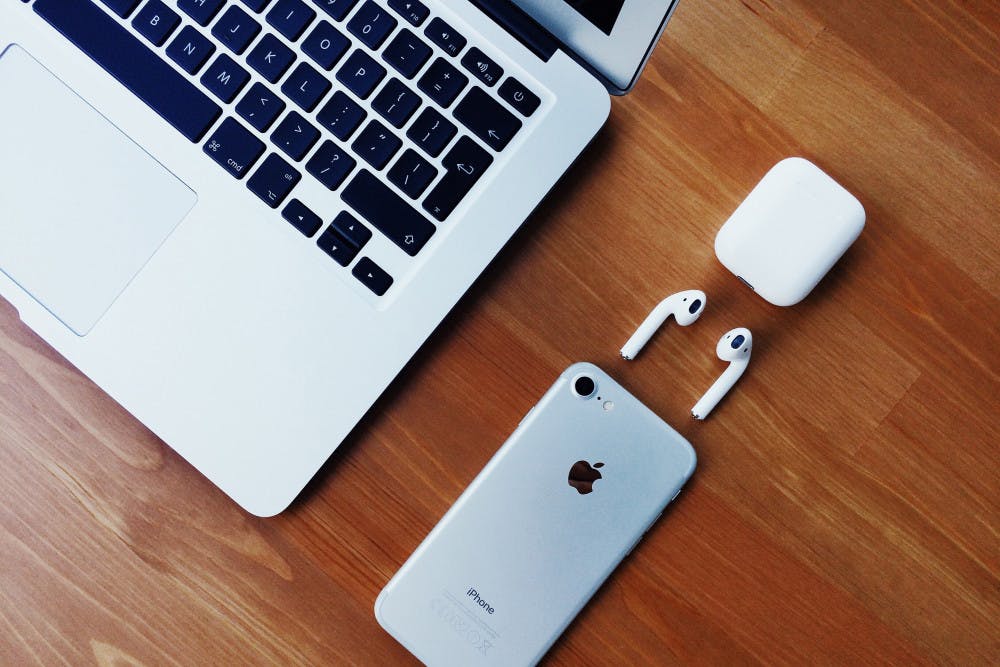Earlier this year, I wrote a column about how I owned a pair of fake AirPods. Well, I would like to write I have gotten a second pair that is much closer to the actual product. A trip online to an Asian wholesale website, a few extra dollars for express shipping and six days of waiting brought another pair of fake AirPods to my dorm. They came in a box with the same minimalist Apple style, a lightning cable that works for my phone and even some stamps. My first pair of imposters cost me $2 and were honestly a hassle. These fakes, however, have changed the game for me.
In a world where designs and production are becoming easier to copy, it becomes harder and harder for industries to maintain control of these components of a business. Apple is constantly finding copycat phones hitting the market, either physical phones or even modified versions of their own products. For example, the Asian market has a higher demand for phones with two SIM cards, something Apple does not normally offer in its own phones. Therefore, grey market designers, designers who legally manufacture and sell with the consent of a brand owner outside of the brand’s stores, and producers can fill that demand with iPhones that do have those functions. Should those designers and producers be celebrated for meeting the needs of a market? Normally, the answer is yes, but corporations would rather keep their designs within their own walls and keep as much money as possible rather than letting the market flow.
Intellectual property is a minefield people are constantly challenging when they want to create and produce products for others to consume. If I wanted to create the next big straw craze, once I started to sell those straws they could be produced by almost anyone and then sent to a manufacturer and sold at a cheaper price. How we tackle the issue of copyrights and intellectual property will need to change in the future because the controversy has the possibility to infringe on the company’s rights and ownership. For example, musicians can make music, but hackers can also gain access to the same recording tools and distribute that music without any funds directed to artists, making artists unable to make a living with their music.
Online programs like Adobe Photoshop and other Adobe software can be downloaded to recreate logos. Platforms like SoundCloud, Spotify and Apple Music have abstracted music ownership through bundling access, but that music can be shared or downloaded off of other people with no cost except time. The internet is built up into a huge central database with information that tends to be copied and redistributed.
Ideas want to be spread, but they are the intellectual property of companies and people. The internet gives us the tools to share powerful information and the ability to reach out and to speak to others. It is a network for innovation, but it needs to be better policed. Of course, the internet cannot be taken away, and it should not be. However, there needs to be a better way to spot copycats of products and to allow for the creators of products to receive the credit and monetary gain from their products.
Daniel Gamboa is a UF journalism sophomore. His column normally appears on Fridays.





![Photo of the missing Leachianus “Leachie” gecko. [Photo courtesy of Mike Southwick]](https://snworksceo.imgix.net/ufa/907bd92a-0b29-40eb-a5fb-d7db7cf98b2f.sized-1000x1000.jpg?w=1500&ar=16%3A9&fit=crop&crop=faces&facepad=3&auto=format)
